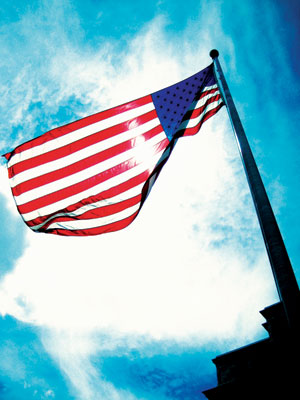All Nonfiction
- Bullying
- Books
- Academic
- Author Interviews
- Celebrity interviews
- College Articles
- College Essays
- Educator of the Year
- Heroes
- Interviews
- Memoir
- Personal Experience
- Sports
- Travel & Culture
All Opinions
- Bullying
- Current Events / Politics
- Discrimination
- Drugs / Alcohol / Smoking
- Entertainment / Celebrities
- Environment
- Love / Relationships
- Movies / Music / TV
- Pop Culture / Trends
- School / College
- Social Issues / Civics
- Spirituality / Religion
- Sports / Hobbies
All Hot Topics
- Bullying
- Community Service
- Environment
- Health
- Letters to the Editor
- Pride & Prejudice
- What Matters
- Back
Summer Guide
- Program Links
- Program Reviews
- Back
College Guide
- College Links
- College Reviews
- College Essays
- College Articles
- Back
Lower the Drinking Age From 21 to 18
In the United States at age 18, a person is legally allowed to buy tobacco, vote, get married, enlist in the military, and work in a bar, among other privileges. However, in most states, he cannot legally drink champagne at his own wedding or have a beer with his fellow comrades. 18 is the age of adulthood in the United States, and adults should have the right to make their own decisions about alcohol consumption. Turning 18 entails receiving the rights and responsibilities of adulthood, which involves making one’s own decisions and reaping the consequences of one’s own actions. It should not be up to the government to tell legal adults what they can or cannot put in their bodies, especially when alcohol itself is not dangerous unless consumed in extreme amounts. When the 18th Amendment was repealed – allowing alcohol once again to be sold and distributed – the federal government left this responsibility of choosing the drinking age to state governments. It was during this time that the majority of state governments democratically lowered the drinking age to 18. However, these states were later essentially bribed by Congress – which used fiscal blackmail and threatened to retract funding for highway construction – to pass the National Minimum Drinking Age Act, which forced all states to change their legal drinking age to 21. In the Equal Protection Clause of the 14th Amendment to the Constitution, it is stated that no state shall "deprive any person of life, liberty, or property." If the Constitution clearly declares that the States cannot discriminate in any way that will deny a person his civil rights, why is the government allowing states to create another second-class citizen in the millions of people aged 18 to 21 unable to drink like the rest of the adults in the country? This demographic has been demoted on notions based solely on medical research; what’s next – that people with low IQs can’t vote? Some may claim that the purpose of a higher drinking age is for our citizens’ own safety. Safety should not be an issue when it comes to lowering the drinking age a few years. After all, the government is ready and willing to allow its citizens to die fighting for their country, but suddenly, a beer puts these citizens too much at risk. And if the government truly is concerned about its citizens’ safety, they should consider the fact that legalizing alcohol at age 18 would allow 18- to 20-year-olds to drink alcohol safely in regulated environments with supervision. Prohibiting this age group from drinking in bars, restaurants, and other licensed locations causes them to drink in unsupervised places such as fraternity houses or house parties where they may be more prone to binge drinking and other unsafe behavior. In almost every other legal and cultural respect, a person becomes an adult at 18. He can vote, adopt children, sign up for Iraq or become a commercial pilot at 18. Treating alcohol differently turns it into a holy grail of adulthood. Lowering legal drinking age to 18 would make alcohol less of a forbidden fruit, taking away the thrill that many young people get from breaking the law, make alcohol less of a taboo for adults newly entering college and the workforce, and make alcohol consumption a more normalized activity done in moderation. A drinking age of 21 only forces alcohol consumption behind closed doors. Always unsupervised, done in secret and too often excessive, this style of drinking among minors has no doubt been responsible for the alarming rise in rates of dangerous binge drinking at colleges. In as recent as 2006, 72.2% of twelfth graders, not even in college yet – some younger than 18, and all younger than 21 – admitted to having had consumed alcohol before. If the drinking age were lowered to 18, inevitable underage drinking would be much easier to regulate, making situations exponentially safer for all those involved. The legal drinking age in the United States should be lowered from 21 to 18 for its citizens’ own safety, because adults can and should make their own decisions regarding alcohol, and because it is unconstitutional not to give them the chance to try.

Similar Articles
JOIN THE DISCUSSION
This article has 3 comments.
